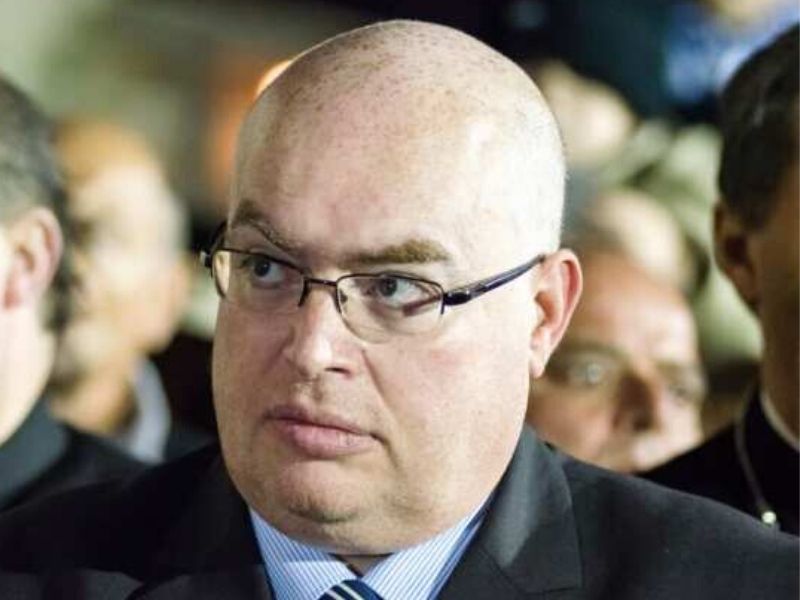One of the things that emerge from scrutiny of the 419-page report of the magisterial inquiry into the migrants’ death is that the Prime Minister was given access to the evidence five days before being questioned.
Robert Abela was identified as a suspect, together with the army chief and crew of a patrol boat, in a police report filed by Repubblika.
The civil society organisation had drawn its report on two incidents: the contested events around the alleged imperilling of people’s lives in the leadup to a ‘rescue’ of 66 immigrants by Malta’s armed forces, and the death of 12 migrants after the boat they were in drifted astray for several days before being eventually returned to Libya.
The inquiry into willful homicide was held by Magistrate Joe Mifsud who took the extraordinary decision, beyond the bounds of the law, to “order” transmission of a copy of the report to two Ministers.
The government then published it last Saturday, and Abela has used the report as vindication. The Labour Party has been calling for the political scalp of Opposition MP Jason Azzopardi, one of the lawyers who represented Repubblika in the police complaint.
In yet another disquieting move, which has no basis in law, the magistrate recommended the reintroduction of criminal defamation – a law that has been banished in 2018 after years of pressure from the Council of Europe, media freedom organisations, justice experts and key politicians.
Ironically, the same magistrate – a former Labour Party official and broadcaster appointed to the Bench under a Labour administration in 2015 – had supported the call for the removal of criminal libel. The government has used that change as defence against criticism of the deterioration of press freedom in the country.
Beyond the magistrate’s call for increased restrictions on the press, the inquiry published raises serious questions about whether the magistrate acted within the bounds of the law.
Prime Minister given evidence gathered before being questioned
On 29 April, the Prime Minister filed a legal application requesting access to “all of the material” in the case, including witness depositions, as well as “material that had yet to be gathered” in the course of the inquiry.
He based his request on Article 6 of the European Convention of Human Rights (ECHR), and Articles 534AB (1) (c) and 534AF (1) of the Criminal Code. The request was acceded to on the same day.
There are two chief obligations arising from Article 6, under the umbrella of the right to a fair trial, at the investigation stage. This is the right of the suspect to be given sufficient information of accusations against him, as well as to have access to a lawyer and the right to have his lawyer in attendance prior to, and during, questioning.
Article 534AB (1) (c) has a similar scope, specifying that the suspect has “the right to be informed, in such detail as is necessary to safeguard the fairness of the proceedings and the effective exercise of his rights of defence, of the offence he is suspected or accused of having committed”.
That is not the same as turning over all the material – or evidence, which appears to have included what other witnesses or those interrogated said – before the “suspect” is questioned.
Normally, the evidence gathered would only be made available to the person if formally charged or accused before the trial proper. In this case, the magistrate acceded to the Prime Minister’s request on 29 April, and then questioned the Prime Minister five days later.
This means that the Prime Minister had a chance to see all material or evidence gathered by the inquiry or investigation before he gave his own testimony.
As for the other Article invoked in Abela’s application (Article 534AF (1)), this had no relevance to the situation.
It reads: “Where a person is arrested and detained at any stage of the criminal proceedings, any documents in the possession of the police which are related to the specific case and which are essential to challenge effectively the lawfulness of the arrest or detention, shall be made available to the arrested person or to his lawyer.”
Delegating witness examination
The magistrate engaged laywer Lennox Vella to take depositions of the 66 rescued immigrants.

Lawyer Lennox Vella
Manuel Delia reported that Vella was Mifsud’s personal lawyer and appeared as co-counsel for the magistrate as parte civile when a man was charged for reviling him with a YouTube video.
Yet the law on magisterial inquiries specifies that “no expert shall be appointed solely for the purpose of examining witnesses on oath and taking down their depositions in writing and establishing the relevant facts” if the alleged crime involved carries a sentence of seven years or more imprisonment.
Wilful homicide can carry a life sentence.
In this case, the legal expectation of Article 548 is that the inquiring magistrate questions the witnesses. Moreover, irrespective of the provisions of the law, the accounts of the rescued constituted crucial evidence, and the inquiring magistrate would have benefitted from questioning them directly.
Yet, in this case, the magistrate also invoked Vella’s analysis in the text, suggesting that the magistrate did not even go through the raw interviews and data gathered from migrants, but simply relied on Vella’s analysis.
Report irregularly sent to ministers
The magistrate “ordered” that the inquiry report, technically called procès-verbal, be transmitted to the Foreign Affairs Minister and the Home Affairs Minister.
There are no provisions in the law to this effect. The point of an ‘in genere’ inquiry is to preserve and describe any evidence of a crime allegedly committed in a manner that could then be admitted in any eventual trial.
These are secret inquiries, the magistrate merely sends the procès-verbal to the Attorney General. While the magistrate may make recommendations for further investigations or prosecutions, the Attorney General has the power to disagree with the procès-verbal and its conclusions.
Accordingly, the Attorney General has the power to send the procès-verbal back to the magistrate to continue the inquiry and hear further witnesses.
This could, in turn, be used for further investigation by the Attorney General and the police, if there is enough evidence to commence proceedings in Court – the only place where guilt or absolution may be awarded – the procès-verbal is filed as evidence.
If the case goes to prosecution, the report then becomes part of the evidence available to any party to the case. If it doesn’t go to Court, no one has a right to see the report.
Any party, victim or accused, can write to the Attorney General requesting a copy, but that decision lies with the Attorney General who may decide whether to provide a copy in full, or an abridged version, or just the conclusion – or nothing at all.
In this case, Magistrate Mifsud also ordered the transmission of the report to the Police Commissioner “under the terms of Article 561(1) of Chapter 9 of the Laws of Malta.” There is no such sub-article in the law.
The law – Article 569 (5) – limits order to transmit the procès-verbal to the Police Commissioner to those cases in which the magistrate makes orders to prosecute. There is no order to arraign in this case.
Call for reintroduction of criminal defamation
On pages 404-405, the magistrate calls for the reintroduction of criminal defamation, which had been banished from the law in 2018 through the implementation of the new Media and Defamation Act. At present, anyone who feels defamed can sue in the civil courts.
In the analysis leading up to this recommendation, the report argues that “there should be a mechanism” that would protect State operatives from false allegations. This is followed by an observation about unaccountability for people saying whatever they want nowadays, as well as an allusion to “what is known as fake news”.
Then, in making the recommendation, the magistrate mentions two former articles in the law and calls for reintroducing one of them. He says that it is “right” that criminal libel was revoked, arguing that the other article, recommended for reinstatement, had no impingements on the media. This observation is unclear given the wide sweep of the provision recommended for reinstatement.
Neither is it clear why criminal defamation is relevant to the case at hand. There is no manifest intent or evidence of NGO Repubblika having made false allegations in its report to the police.
Repubblika simply used material in the public domain to identify possible crimes and possible suspects and backed all of it with legal argumentation to trigger a magisterial inquiry. It’s all transparent, and the NGO even took the initiative, after it had already made its initial report, to put forward revelations that emerged in the media and contradicted its initial report.
An ‘in genere’ inquiry is designed to narrowly focus on gathering and judicially preserving any evidence of a crime committed or suspected to have been committed and in which suspects have been identified.
Neither law nor judicial custom provides for recommendations on changing laws – that is usually limited to judgments in open courts on completion of trials.
Malta has already faced another situation in which another inquiry, which involved Joseph Muscat, Abela’s predecessor and mentor, used it to claim vindication and attack his critics. That exercise has been criticised by legal experts, but the magistrate was still promoted to Judge.”












